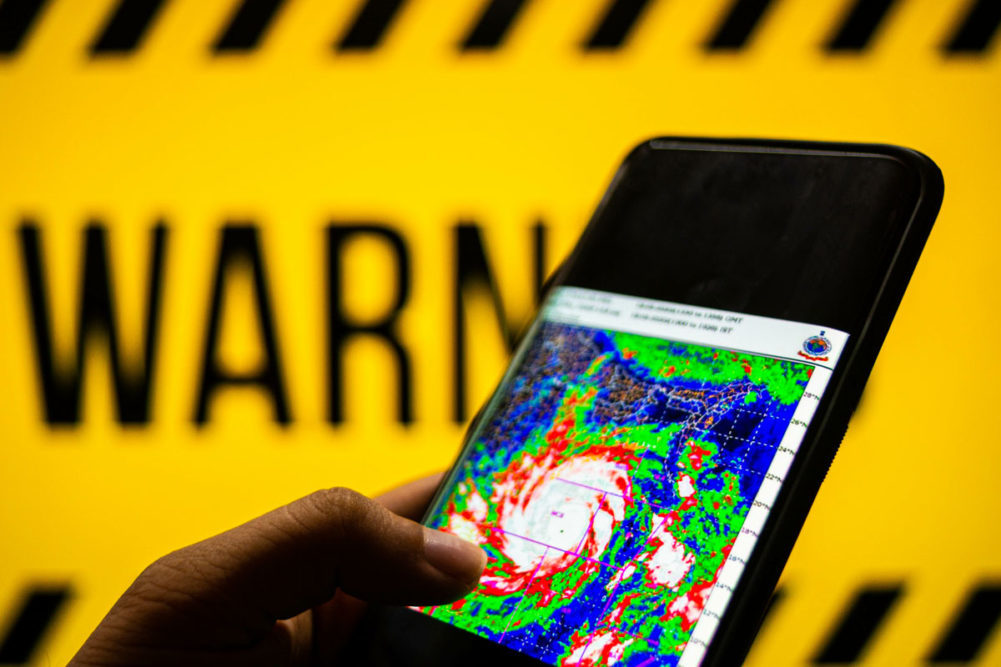KANSAS CITY — Sustainability is higher on the list of priorities for younger consumers, according to data from Morning Consult. The Washington-based global intelligence company found Gen Z shoppers are nearly twice as likely as baby boomers to consider a food and beverage product’s environmental impact.
More than two-thirds of Gen Z respondents surveyed by Morning Consult said sustainability has at least some impact on their food and beverage choices, including 32% who said it has a major impact. Just 17% of baby boomers said the topic has a major impact on their everyday eating and drinking behaviors.
“When you read about hurricanes, wildfires and flooding in the news, they’re often mentioned in the very same sentence as climate change,” said Emily Moquin, food and beverage analyst at Morning Consult. “The younger generation is consuming that information and they’re very aware of the changes that are occurring to our natural landscape.”
Gen Z is experiencing conditions that weren’t a concern for previous generations. The United States experienced more than a dozen billion-dollar climate- or weather-related disasters in 2022, according to a recent report from The Food Institute and SIAL America. The report cited data from Climate Central that show the average number of days between such billion-dollar events decreased from 82 in the 1980s to 18 in 2021.
As digital natives who grew up with access to information at their fingertips, Gen Z may be more aware of the relationship between extreme weather, climate change and the food system than their older counterparts.
“Weather patterns can impact everything from crops to logistics,” said Mark Stevens, spokesperson for SIAL America. “Specifically, in the United States, a significant portion of the citrus crop for this winter was impacted by Hurricane Ian. We’ve also had huge downturns in corn production due to drought in the Midwest.”
Individual consumers may have little control over weather patterns and crop yields, but they do believe their actions can have a positive impact on climate change. Morning Consult found Gen Z consumers are more likely to engage in a range of core sustainability actions, like composting, recycling and purchasing imperfect produce. Still, they’re more concerned about what companies are doing than what they themselves are doing.
Researching sourcing and production practices is a common action taken by younger consumers, according to Morning Consult. More than half of Gen Z respondents surveyed by the company said they actively invest time and energy into researching products and learning about sustainability initiatives.
Reducing water and industrial food waste, committing to be emissions-free and introducing sustainable or regenerative farming practices are among the top actions that consumers want brands to take.
“If it weren’t for Gen Z and consumers in general pushing for programs like upcycling or regenerative agriculture, they wouldn’t be the prominent terms that they are today,” Mr. Stevens said. “There’s an accountability that Gen Z is looking for from any brand they’re buying from, whether it’s clothing or a food product. They want to understand where it comes from and how it was produced.”
The buying power that Gen Z holds is influencing not only the way products are being created, but also how they’re being marketed, he added.
“If you look at labels today, there’s more information on there that wasn’t available in the past,” Mr. Stevens said. “The industry is starting to look at the sustainability of a product or its carbon footprint being placed onto the label, and that really goes back to addressing those demands for more accountability.”
Recyclable packaging and local sourcing also are among the initiatives consumers want to see from food and beverage brands. Younger consumers are more likely to show interest in fair trade labels, too.
“Fair trade labels becoming a bigger area of interest points to the evolving definition of sustainability among highly engaged consumers,” Ms. Moquin said. “Younger shoppers increasingly view sustainability as an all-encompassing topic that includes social and economic factors in addition to environmental concerns.”
